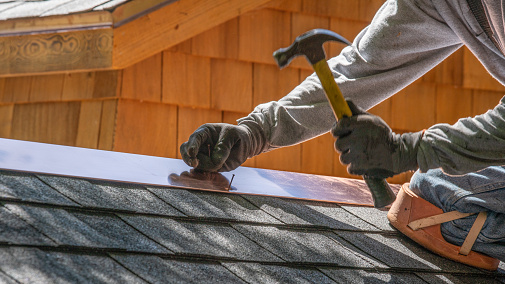How to get the most from a shingled roof

Shrinking and expansion can reduce the life expectancy of a shingled roof.
I bought my house with a new roof back in 2004. At that time, the roof was replaced by the sellers due to improper installation when the home was built in 2000. Why did I turn around and completely replace my asphalt shingle roof again in 2015? The 2004 roof was installed correctly and there were no major issues, such as wind or hail damage. However, the shingles were not living up to their life expectancy.
It is a good idea to have your roof inspected every few years by a professional. Skylights should be included in these inspections to confirm no leaks, cracks or other issues with the caulking and flashing around them.
Consider the following when thinking about the maintenance and longevity of your roof:
Asphalt or architectural shingles come in a variety of lifespan warranties: 25, 30 or even 50 years. These warranties are typically a manufacturer’s warranty that covers defective materials.
Most people are sold on these long-lasting shingle warranties without understanding that the shingle is meant to last for that time period in idyllic conditions. This means that extreme cold (which causes the shingles to shrink) or extreme heat (which causes the shingles to expand) is not taken into account in that provided warranty.
Along with the shrinking and expansion of the shingles, repeated rain, sleet or hail could easily cause granular loss or lifting shingles. Both of these instances take away from the life expectancy of that shingle.
Leaves and debris left to remain on an unchecked roof may also cause shingle deterioration.
Placing a second layer of shingles on top of an existing layer of shingles may be less expensive in the near term. However, placing a flat roofing surface material such as tar paper or membrane on top of an uneven layer of pre-existing shingles causes unforeseen gaps between the layers that can cause mold, trap ice and water and further deteriorate the roofing structure.
Weather and climate conditions are unavoidable constants, so keep these factors in mind the next time you admire your roof. Regular maintenance will help identify any problems as they occur, avoiding the premature cost of an unexpected whole-roof replacement.
MORE INFORMATION
How to select a roofing contractor
Your roof may be aging faster than you realize
This loss control information is advisory only. The author assumes no responsibility for management or control of loss control activities. Not all exposures are identified in this article. Contact your local, independent agent for insurance coverage advice and loss control information.



